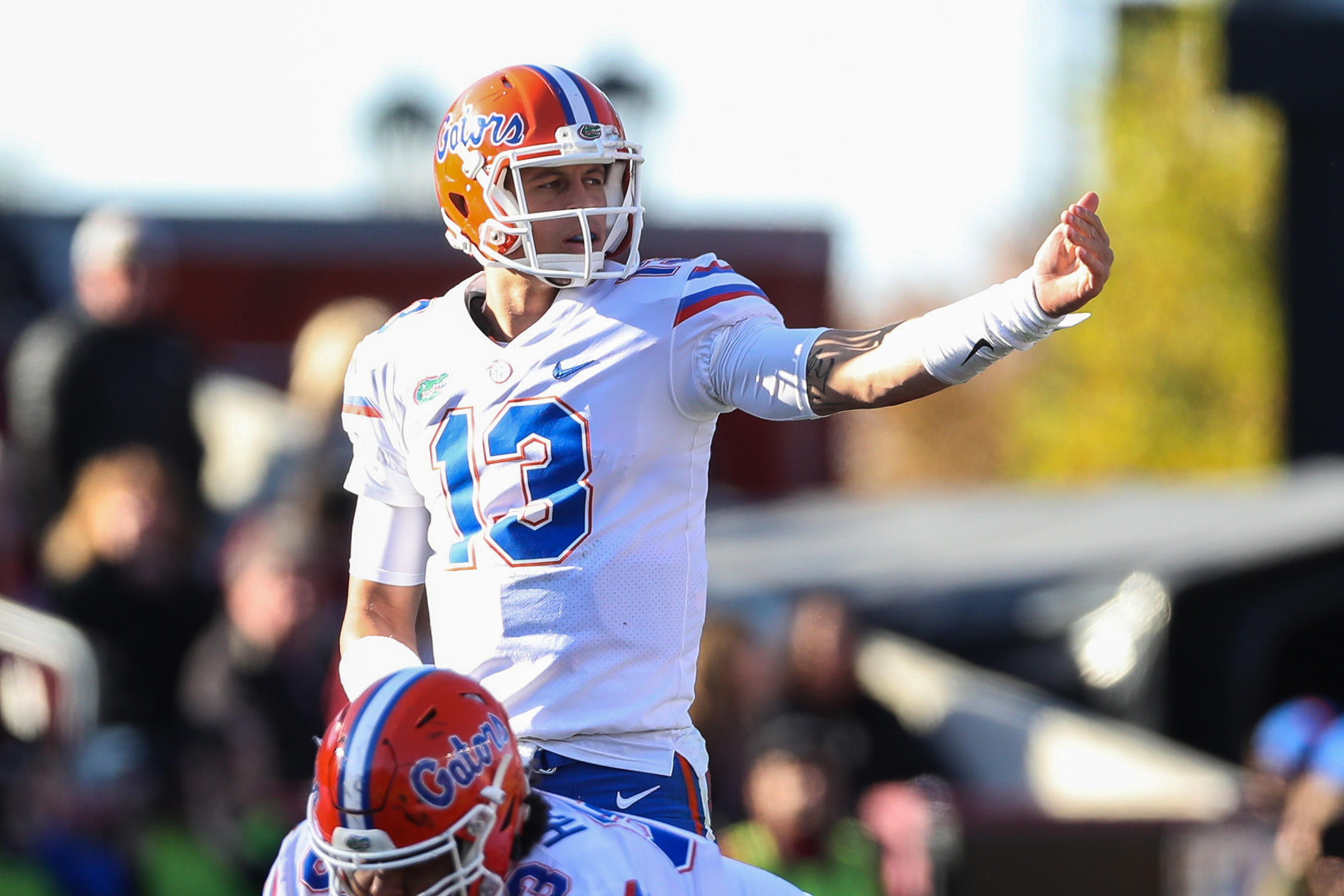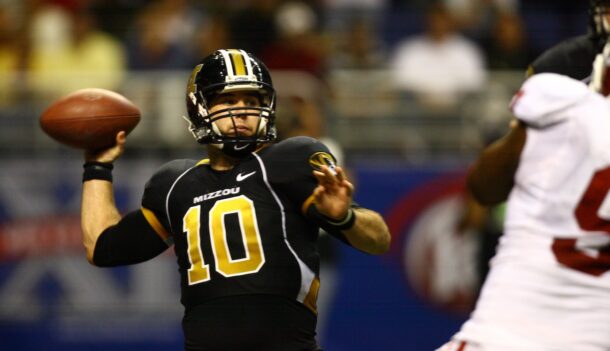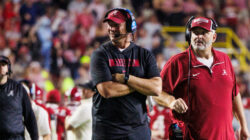
Whether Gators hire Chip Kelly or someone else, Feleipe Franks isn’t the long-term answer at quarterback
As Florida’s miserable season draws toward a merciful close, most eyes around the program are fixed on athletic director Scott Stricklin’s coaching search. The center of attention in the search at present is former Oregon head coach Chip Kelly, who, if you follow the rumor mill, has gone from interested but unlikely to “done deal” and “on his way to Gainesville” in the last 24 hours.
The merit of the Chip Kelly rumor that caught fire this weekend is questionable at best, not just because it defies the claims of many program beat writers and insiders, but also because it appears its genesis is a tweet sent by a Boise State student talk radio host:
#Sources have told me that Chip Kelly is going to be the next coach of #Florida #CollegeFootball #NCAA
— Peter Huguenin (@PeterHuguenin1) November 8, 2017
It seems unlikely that a college senior nearly a continent away would break an enormous story, and it was odder still that longtime Gators insider Franz Beard basically confirmed the story last evening, without much explanation. But I suppose it’s possible Stricklin and Florida have something in place with Kelly in principle. And in a coaching search that’s been short on leaks and long on secrecy, it’s understandable that fans would want something — anything — to latch onto.
Whether it’s Chip Kelly or someone else, Florida’s 28-20 loss to South Carolina Saturday affirmed what is obvious: the new hire will have plenty of work to do.
Florida has a decade’s worth of futility on offense, culture issues and personnel issues to clean up, and that’s before you get to the race to catch up with what appears to be, despite Saturday’s loss at Auburn, an ascendant Georgia.
Most critically, what’s been true since the graduation of Tim Tebow remains true for the Gators: the program lacks answers at the quarterback position, and if the new hire can’t solve that problem, he won’t last either.
Florida’s loss at South Carolina was just the latest evidence.
Playing from behind most of the game and facing a defense that ranked in the second-half of the country in pass-efficiency defense (67th overall) and in the middle of the country in S&P+ defense (47th nationally), the Gators opted to try to exploit the Gamecocks through the air. After Malik Zaire was injured in the first half, the Gators turned to redshirt freshman Feleipe Franks to execute this strategy. For the most part, Franks did what he’s done most of the 2017 campaign: he failed.
Franks was 10-of-25 for 174 yards, no touchdowns and a game-clinching interception late in the fourth quarter when Florida had seized momentum and had a chance to tie the game. Franks was hampered by a pair of costly drops, but otherwise continued to show little improvement from earlier efforts. He missed open receivers, held the ball too long despite decent protection, and had four passes deflected at the line of scrimmage, which is extremely problematic given his 6-foot-5 frame.
In Franks’ defense, he was long-considered a project, even when his physical tools made him a highly-coveted quarterback prospect out of Crawfordville, Fla. He had played largely smaller-school competition and was considered under-coached. It was always going to take him time to develop.
But most of Franks’ errors are processing errors, the kind that suggest he doesn’t grasp basic concepts, playbook progressions or even simple situation football. How much of that is due to poor or subpar coaching from offensive coordinator Doug Nussmeier and the now-departed Jim McElwain is a fair debate. But the reality is Franks continues to make the types of mistakes you’d think he’d be correcting at the end of his second year on campus.
One play stood out in that regard Saturday, and it wasn’t the ill-advised throw that was tipped and intercepted to seal the Gamecocks’ win.
Instead, it came at the beginning of the Gators’ final possession. Florida opened with a pass play on first down and Franks had two options on the left side, where a simple look-off of the safety (what every freshman quarterback is drilled to do from his first day on campus) would have resulted in a positive play for Florida. Rather than look-off the safety and make the quick read, Franks held the ball too long, and South Carolina was able to get pressure from defensive end D.J. Wonnum.
When Wonnum broke through, Franks backpedaled, and rather than use his gargantuan arm to sling the ball out of bounds, he threw the ball at Wonnum’s feet, taking an absurd penalty and giving Florida a 2nd-and-21. Florida managed to convert for a first down a few plays later, but the Gators never established a rhythm on their final possession and Franks threw the critical interception a few plays later.
The whole sequence was instructive.
Franks competes hard, has a positive attitude, and by all accounts is well-liked in the locker room. But he’s shown few signs this season of being the type of difference-maker Florida needs at quarterback to help the program escape a decade of offensive ineptitude. And there’s little, if any, evidence he’s getting better.
Many of Florida’s top coaching targets have wonderful histories with developing quarterbacks, whether it’s Chip Kelly with any number of players; Scott Frost with Marcus Mariota, Vernon Adams and McKenzie Milton; or Dan Mullen with Alex Smith, Tim Tebow, Cam Newton, Dak Prescott and Nick Fitzgerald. Then again, so did Jim McElwain, and we all saw how that worked out.
Maybe it’s just the coaching holding Franks back. Maybe a clean slate and a fresh set of ideas will cure what ails him as he moves into his sophomore campaign.
The good news on that front is that in a few weeks, Florida’s program will move forward with a new head coach. The bad news is that as Franks continues to pile up poor performances like Saturday’s, the more convincing the evidence becomes that Florida’s new coach may need to move forward with a new quarterback to give the Gators a chance to succeed.
Neil Blackmon covers Florida football and the SEC for SaturdayDownSouth.com. An attorney, he is also a member of the Football and Basketball Writers Associations of America. He also coaches basketball.







